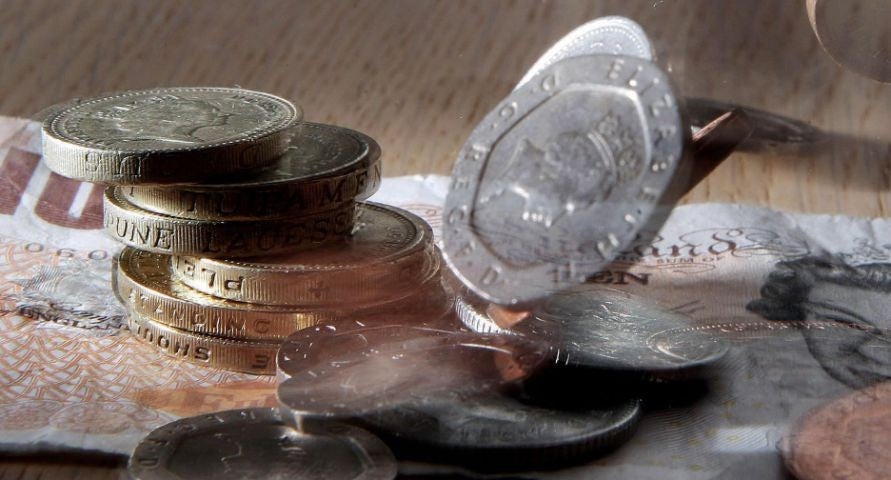
Your support helps us to tell the story
From reproductive rights to climate change to Big Tech, The Independent is on the ground when the story is developing. Whether it's investigating the financials of Elon Musk's pro-Trump PAC or producing our latest documentary, 'The A Word', which shines a light on the American women fighting for reproductive rights, we know how important it is to parse out the facts from the messaging.
At such a critical moment in US history, we need reporters on the ground. Your donation allows us to keep sending journalists to speak to both sides of the story.
The Independent is trusted by Americans across the entire political spectrum. And unlike many other quality news outlets, we choose not to lock Americans out of our reporting and analysis with paywalls. We believe quality journalism should be available to everyone, paid for by those who can afford it.
Your support makes all the difference.Pressure on household incomes eased last month as high street discounts in the run up to Christmas triggered the largest drop in inflation in nearly three years.
A fall in clothing prices - driven by retailers slashing prices in a bid to pull in customers - ensured the overall rate of consumer prices index (CPI) inflation dropped to 4.2% in December from 4.8% in November.
Economists said the drop, which came after a sustained period of high prices and slow wage growth, paved the way for the Bank of England to pump billions of pounds of extra cash into the economy and hold interest rates at 0.5% for months to come.
While any decline will be welcomed, there were warnings that savers are still struggling to earn real returns on their money, while CPI is still more than twice the Government's 2% target.
Data provider Moneyfacts said that to beat inflation, a basic-rate taxpayer needs to find a savings account paying 5.25% per year, while a higher rate taxpayer at 40% needs to find an account paying at least 7%.
There are just eight standard savings account that taxpayers can choose to negate the effects of tax and inflation and these are all fixed-rate Isas, Moneyfacts said.
Sylvia Waycot, of Moneyfacts, said: "The wheels of UK finance would shudder to a stop without the nation's savers and yet they still see little reward for their investment."
December's decline was driven by a 2.8% plunge in the price of clothing and footwear, although there was less evidence than expected of the impact of the supermarket price war started in early October, as food prices rose by 1.4% month on month.
The ONS said downward pressure also came from fuel prices, which dropped 0.6%, and alcoholic drinks, which fell 1.5% between November and December.
The fall in clothing prices was driven by a wide range of garments, with a particularly large drop in women's outerwear, the ONS said.
The retail sector has been one of the most apparent victims of last year's consumer spending squeeze as a string of businesses closed stores or fell into administration.
There was some upward pressure last month with the largest price increases coming from mobile phone charges, rising 1.3%.
Looking ahead, Chris Williamson, chief economist at financial information services company Markit, said: "Further falls are likely in coming months, reducing the squeeze on incomes seen last year and therefore providing a much needed boost to economic growth in 2012."
Elsewhere, alternative measures of inflation also fell, with the retail prices index (RPI) dropping from 5.2% to 4.8%.
The Bank of England in its last inflation report, in November, said that it expected the rate of inflation to fall back gradually through 2012 before possibly undershooting the Government's 2% target next year.
The increase in the cost of living is expected to slow further as the economy grinds to a halt and unemployment soars towards the three million mark.
Vicky Redwood, economist at Capital Economics, said today's figures paved the way for a further increase in QE next month.
She said: "Obviously these falls in inflation will help to alleviate the squeeze on households' real pay - but the deteriorating labour market and tightening credit conditions will maintain the downward pressure on consumer spending this year."
PA
Join our commenting forum
Join thought-provoking conversations, follow other Independent readers and see their replies
Comments